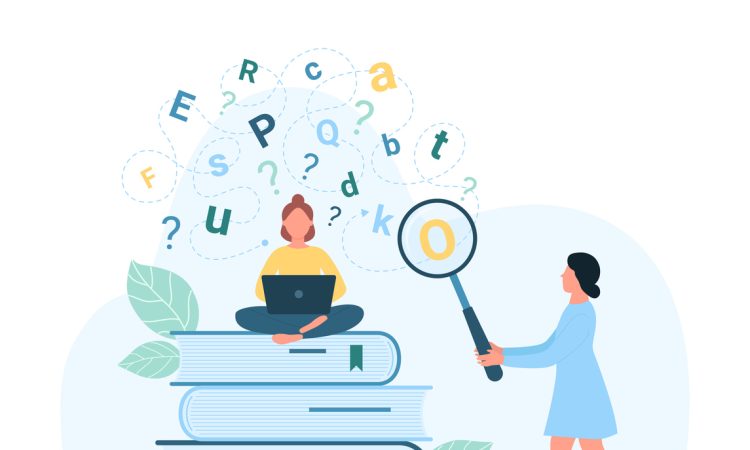|
Getting your Trinity Audio player ready...
|
Navigating the job market can be challenging for anyone, but those with diverse learning styles may face additional hurdles. While “learning disorders” or “learning disabilities” are commonly used terms to describe specific neurological conditions that can affect how an individual acquires, remembers, organizes, understands and expresses information, the term “learning styles” highlights that there are different but equally valuable ways of acquiring information.
These conditions affect skills such as oral language, reading, writing and math. For example, individuals may encounter difficulties with reading (dyslexia), writing (dysgraphia) and math (dyscalculia). According to the 2022 Canadian Survey on Disability, nearly 6% of Canadian adults over the age of 15 have unique learning styles that are distinct from neurotypical learning styles. For these individuals, stigma and inadequate workplace accommodations can create barriers to securing and maintaining employment. The following resources will be useful for career professionals (CDPs) working with clients with diverse learning styles, as well as for jobseekers with learning disorders and employers looking to create more inclusive work environments.
This article is part of a CareerWise series on Neurodiversity and the Workplace.
Dyscalculia at Work (Succeed with Dyslexia) [Webinar]
This on-demand webinar delves into how dyscalculia manifests in adults. Drawing from lived experiences, the webinar provides a holistic understanding of dyscalculia in professional settings and offers additional resources for ongoing support. Succeed with Dyslexia also has several other on-demand webinars exploring workplaces and learning disorders.
Dyslexia, A Gift for Professionals (Specialisterne) [Blog post]
In this blog post, a sales professional with dyslexia shares how their learning differences have become an asset in their career. They highlight the unique strengths that individuals with dyslexia often possess, such as creativity and resilience, while offering practical tips for managing challenges like decoding new information. This post offers insights for both jobseekers and employers on creating supportive work environments.
Employment Counselling for People with Developmental and Learning Disorders (Alis) [Article]
This resource offers practical strategies for supporting jobseekers with learning disabilities, focusing on improving organization, time management and task completion. It provides step-by-step approaches such as using adaptive tools like voice recognition software, creating checklists and practising social behaviours in a structured environment. Career professionals can use these strategies to help clients navigate job searches and perform more effectively in the workplace.
How to Support Employees with Learning Disabilities (Randstand) [Article]
This article provides practical guidance for employers looking to create an inclusive work environment for employees with learning disabilities. It highlights key strategies such as eliminating written tests, offering flexible deadlines and implementing structured processes to help employees thrive.
How’d You Get THAT Job?! (understood.org) [Podcast]
This podcast series explores the diverse career paths of individuals with learning and thinking differences. The series features interviews with professionals who share how they found fulfilling careers that align with their unique ways of learning. One episode offers advice from a career coach with ADHD and dyslexia, providing practical tips for navigating the workplace. Understood.org also offers additional resources on workplace supports for people with learning disabilities.
Important Context for Counselling People with Learning Disorders (Alis) [Article]
This resource provides an in-depth overview of specific learning disorders, including their impact on skills such as reading, writing and math. It covers common disorders like dyslexia, dyscalculia and dysgraphia, offering insights into how these conditions can affect job performance. The article also highlights strategies for managing learning disorders in the workplace and includes links to related resources on supporting individuals with learning disabilities.
Learning Disabilities Association of Canada [Association]
Find links to provincial/territorial associations, as well as advocacy research and position papers.
Learning Disabilities Association of Ontario [Association]
This website has several resources for individuals with learning disorders and their support networks including online workshops and courses, personal stories and reflection and articles about LDs and employment. You can also find useful general information from their sister site, LD@Home, including common terms, definitions of and myths around learning disabilities, understanding learning disabilities and current research, as well as information about workplace disclosure and accommodations.
Project GOLD (JVS Toronto) [Program]
Project GOLD is a free program designed to help adults with learning disabilities, ADD or ADHD gain a better understanding of their unique strengths and challenges to secure meaningful employment. The program offers personalized job search support, including resume modification, job coaching and workshops, while also aiding with workplace accommodations and disclosure.
We Need to Talk About NVLD in the Workplace (FastCompany) [Article]
This article highlights the unique challenges of Non-Verbal Learning Disorder (NVLD) in the workplace, a lesser-known learning disorder. It explains how individuals with NVLD, who often excel in verbal communication but struggle with nonverbal tasks, can be misunderstood and overlooked in professional settings. The article advocates for better workplace accommodations and awareness, emphasizing the importance of aligning job responsibilities with the strengths of employees with NVLD to foster a more inclusive work environment.







